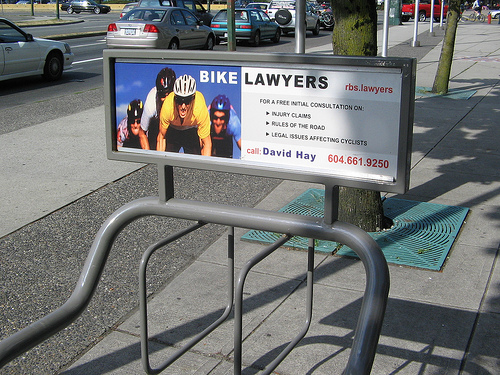
After the initial joy at the birth of a new project, every little project needs to put on a pair of big person pants and grow up. As in life, this isn’t always easy, and sometimes you may need to talk to the lawyers.
Take the behemoth Google as an example of the world’s most successful startup. They have a lot of lawyers and a lot of users, and there is a massive tension between the users wanting the aspirational spirit of a startup, and the hard-nosed capitalists running Google. The unofficial Google motto, “don’t be evil”, created by Paul Buchheit in 2000 before the company floated, has become the limit against which every product release, reindex, algorithm change, and announcement is tested. The Google watchers chatter excitedly amongst themselves about how Google is now evil and bemoan that they are now a corporation motivated by providing a return to the shareholders.
It must drive Google crazy, but I guess they are being talked about.
I think Google are simply misinterpreted because the lawyers are involved. Had it been left to the engineers and designers
It was in this spirit that the terms of use of the new Google Drive product were studied, reviewed, and randomly ranted about. If you haven’t heard of it, Google Drive is a new cloud storage solution designed to compete with the magnificent DropBox and Microsoft’s Skydrive. It has deep integration into Google Docs and Google are using their technology stack to make translations and finding documents very easy.
Google’s terms identified them as the bad guy compared its DropBox’s good guy. Here are their terms compared:
Some of our Services allow you to submit content. You retain ownership of any intellectual property rights that you hold in that content. In short, what belongs to you stays yours.
When you upload or otherwise submit content to our Services, you give Google (and those we work with) a worldwide license to use, host, store, reproduce, modify, create derivative works (such as those resulting from translations, adaptations or other changes we make so that your content works better with our Services), communicate, publish, publicly perform, publicly display and distribute such content. The rights you grant in this license are for the limited purpose of operating, promoting, and improving our Services, and to develop new ones.
DropBox
By using our Services you provide us with information, files, and folders that you submit to Dropbox (together, “your stuff”). You retain full ownership to your stuff. We don’t claim any ownership to any of it. These Terms do not grant us any rights to your stuff or intellectual property except for the limited rights that are needed to run the Services, as explained below.
We may need your permission to do things you ask us to do with your stuff, for example, hosting your files, or sharing them at your direction. This includes product features visible to you, for example, image thumbnails or document previews. It also includes design choices we make to technically administer our Services, for example, how we redundantly backup data to keep it safe. You give us the permissions we need to do those things solely to provide the Services. This permission also extends to trusted third parties we work with to provide the Services, for example Amazon, which provides our storage space (again, only to provide the Services).
On the face of it Google’s terms are scary. They to do a whole bunch of scary stuff to any content compared with DropBox’s benign hosting, sharing, and thumbnail generation. This is a misguided interpretation, both services allow full retention of intellectual copyright and make reference to some actions required to provide the service. Google do it in a specific way, DropBox are a bit more vague.
Neither service magically steals your precious quarterly revenue presentation, unfinished novel, collection of haiku poetry, or resume.
In fact Google’s terms may be a little better as they are very specific about what may be required in order to have a kick arse cloud product. DropBox’s terms are a little more magical – we do stuff you can’t see to deliver our service.
So the fuss is really over nothing. When we get sophisticated and free software like free email, free storage, games, video storage and playback we grant certain rights in return because well the software is free and we cannot use the service without granting certain rights. That’s how it works in lawyer land. Both DropBox and Google are providing similar services and requesting similar rights to deliver that service. The hoopla is a direct result of lawyers firstly defining the rights and obligations, and secondly, doing it in different ways. An engineer would make sure it was consistent and there was a standard.
The net result is that social media addicts whose minds have been dulled by an avalanche of information 24/7 don’t know how to react except by grabbing the pitchfork and having a giant whine about how Google are now really evil. Like really really evil.
Just as startups need to grow up so do users. Even free stuff costs money and it’s been the case since hotmail launched with free email. If users don’t like certain terms they should pay a premium to get the terms they do like. The only issue with that is that I guess the lawyers are involved. Again.

